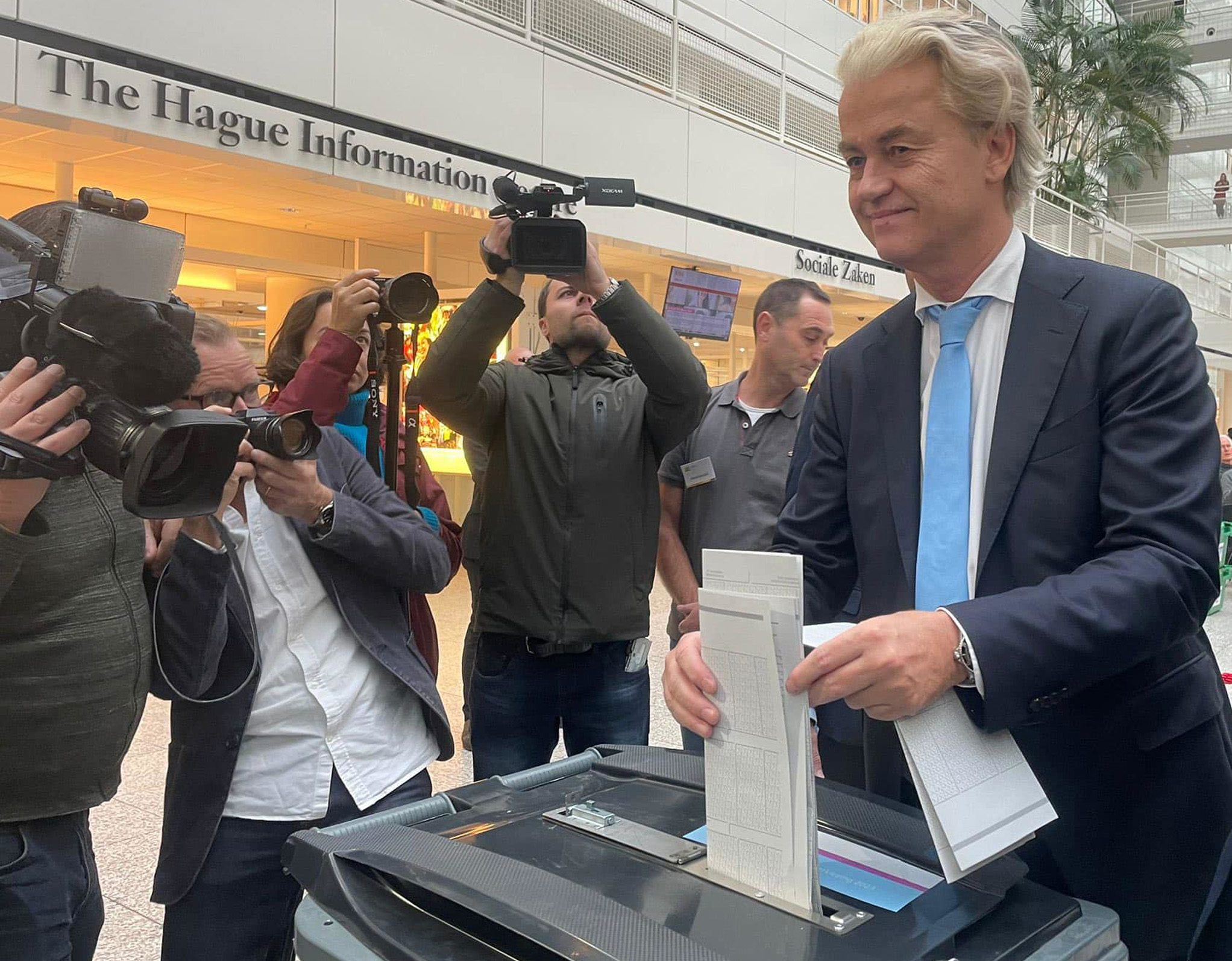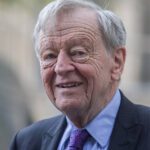
Geert Wilders’ anti-immigration party gained the most seats in November’s elections, but forming a government in the Netherlands in never simple. Charles Fox sees parallels with past events
This article originally appeared in the Winter 2023/24 issue of Searchlight magazine
Even by the standards of the often higgledy-piggledy world of Dutch politics, the results of the general election on 22 November sent the system into something of a spin with the emergence of populist Geert Wilders’ anti-immigration/anti-Islam Party for Freedom (PVV) as the largest group in the Second Chamber (or House of Representatives, roughly the equivalent of the UK’s House of Commons), with 37 seats out of 150. The party with the next largest number has 25.
As is usual following a general election under the country’s proportional representation system, the various parties – there are 15 with at least one elected member – are horse-trading to assemble a coalition. (No single party has formed a majority government in the country for well over a century.) Also as is usual, the pre-election cabinet remains in office until a new arrangement is finalised: at worst, negotiating such coalitions has been known to take the best part of a year. What is not usual this time around is that the lingering Prime Minister, Mark Rutte, is no longer leader of a political party and is not even in the Chamber.
The election was brought about by the collapse of the regime sometimes referred to as “Rutte IV”, the fourth coalition cabinet led by the man who has been Prime Minister since 2010. The fracture was largely centred on immigration policy, in particular proposals to reduce the figures for family members allowed to join asylum-seekers in the country.
Rutte’s own centre-right People’s Party for Freedom and Democracy (VVD) was behind the proposals, with Christian Democratic Appeal pretty much onside. The two other coalition partners – Democrats 66 and the Christian Union – were not happy. Although the CU might be considered conservative, it is strongly opposed to splitting up families, especially refugees from war-torn regions. The rift was declared irreconcilable, and a general election was called.
Rutte announced that he would not lead the VVD into the election (he was replaced by Dilan Yeşilgöz) and would stand down as Prime Minister once a new government was formed. There was a moment of embarrassment for Yeşilgöz, who immigrated to the Netherlands as a child, when she discovered she had dual nationality, which the VVD explicitly discourages. She quickly renounced her apparently unwitting Turkish citizenship.
Rightward swing
Democrats 66 was the biggest loser in the election, dropping from 24 to 9 seats, while the tiny CU fell from 5 to 3. Coupled with Wilders’ PVV leaping from 17 to 37 seats, the fledgling New Social Contract party (NSC), which favours immigration reduction, with 20 seats and the right-wing populist Farmer-Citizen Movement rising from 1 seat to 7, this looks like a landslide swing to the right, but Dutch politics is never quite that simple.
The two coalition parties that had argued for tighter immigration were also seriously punished by the electorate. Rutte’s former outfit went from being the biggest party in the assembly with 34 seats to third place with 24, while Christian Democratic Appeal fell from 15 to 5 seats. Meanwhile, the Green Left-Labour alliance jumped from 17 to 25 seats.
Certainly, there has been an electoral swing to the right, but there is too much inconsistency in the results to characterise this as simply an anti immigration result. There is even doubt as to whether “far right” is an adequate description of Wilders and his party. He is a nationalist, generally anti-immigration and particularly anti-Muslim immigration. His opposition to Islam has manifested itself at various times in him calling for a nationwide ban on the Quran, bans and/or taxes on headscarves and the closing of all mosques. He is strongly anti-EU, which he wants the Netherlands to leave (a move unsurprisingly dubbed “Nexit”).
On the other hand, the party is pro-LGB rights (it teeters a bit on transgender), including same-sex marriage – not always a feature of far-right politics. Unlike many far-right European groupings, there is no anti-Semitic strand.
Some would argue that Wilders is in many ways a successor to the late LPF leader Wilhelmus “Pim” Fortuyn, who was assassinated in 2002. Like Wilders, he did not really fit the mould of a stereotypical neo-nazi. He did hate multiculturalism, was anti-immigration and especially anti-Muslim. A point on which the two appear to differ (although this is perhaps splitting hairs) is that Wilders has stated that he does not hate Muslims, only Islam as a religion. Fortuyn claimed not to hate Islam, but to regard it as a “backward culture”.
Fortuyn was an openly gay man, and this certainly played into his aversion to Muslims. “I have no desire to go through the emancipation of women and homosexuals all over again” – a situation he feared would come about if Islam was allowed to flourish in the Netherlands.
Like the PVV now, Fortuyn’s party (the somewhat egotistically named Pim Fortuyn’s List (LPF)) presented a pick‘n’mix set of policies, straddling the political spectrum. He liked to portray himself as a “liberal” (in the US sense of the word), arguing that only by suppressing growing Islamisation could the Netherlands protect the hard-fought rights of women and the LGB community. It is a posture that Wilders has not attempted openly thus far, but he might do so as a lever in negotiations to form a coalition.
Expedient thinking
Normally outfits like the PVV are kept out of power by other parties declining to negotiate with them. This happened in 2017, when all the significant Dutch parties stated, even before election day, that they would not go into a coalition with PVV, which they regarded as beyond the pale. Six years later this seems less certain.
Wilders should face little difficulty in getting the Farmer-Citizens on board, enlarging his bloc to 44. To get past the halfway mark of 75, he will need to woo the NSC and the Rutte-less VVD. Weakened and with internal problems, VVD has ruled out joining such a cabinet, but is not ruling out propping up a Wilders-led coalition with a confidence and supply arrangement. NSC is signalling it is not exactly keen, but it will hold its nose and sit down for talks about cabinet posts.
It remains possible that PVV’s success in 2023 will prove a flash in the pan. The LPF made a significant impact in 2002, grabbing 26 seats in its first election campaign, but by the following year’s election it had shrunk to minnow status, retaining just 8 of those seats.
The big difference is that Fortuyn was shot and killed nine days before the first election, prompting an appreciable sympathy vote. In 2003, it was a ragbag personality cult that had been stripped of the vital personality. It is not clear what might prompt collapse on that scale for Wilders’ VVD.





